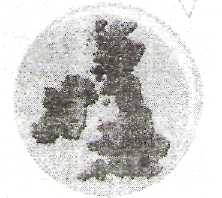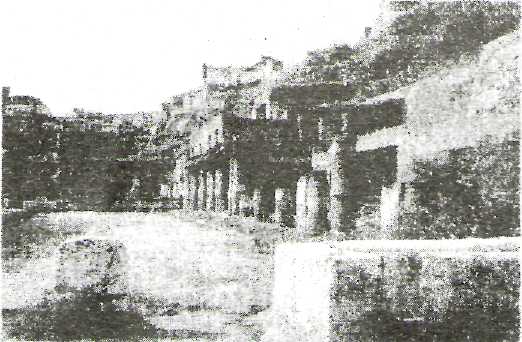
- •Introduction
- •The vulcano vesuvies Chapter 1. Part I
- •Part II
- •The great fire of london Chapter 2. Part I
- •Part II
- •Part III
- •The titanic Chapter 3. Part I
- •Part II
- •Part III
- •Part IV
- •Floods and storms Chapter 4.
- •Part II
- •Part III
- •Part IV
- •Fire in brazil Chapter 5.
- •Bhopal, india Chapter 6. Part I
- •Part II
- •Chernobyl Chapter 7. Past I
- •Part II
- •The challenger disast Chapter 8. Part I
- •Part II
- •The exxon valdez Chapter 9. Part I
- •Part II
- •The kobe earthquake Chapter 10.
- •Conclusion Chapter 11.
Introduction
For thousands of years, people have been interested in disasters. We are both excited and frightened by disasters, and in our modern world, they help to sell newspapers and fill the news we see on television.
Disasters bring out the best and the worst in people's characters. We hear and read stories of great bravery, as well as stories of selfishness. Perhaps it is only in a disaster that a person's true character appears.
The disasters in this book make us think and ask many different questions. Firstly, what causes disasters? Sometimes, we can see that a human mistake caused a disaster, like the Great Fire of London, and the Bhopal disaster in India. When many people die of hunger, there is usually a political or economic cause for the disaster. Other great disasters, like tornadoes, volcanoes and earthquakes, have been caused by the forces of nature, and we cannot do much to prevent them.
The same mistakes will probably not be made twice, but can we learn from past disasters? We must certainly hope that scientists have learnt from the Chernobyl nuclear disaster, and from the Challenger space shuttle disaster.
Are there ways in which future disasters can be prevented? The Japanese people have certainly become good at preparing for earthquakes, and as a result, many lives have probably been saved. Computers and many scientific machines can help to give us warnings of possible disasters. However, it is probably true to say that we shall never completely control the forces of nature. And although science and computers help us in so many ways, we can never completely prevent human mistakes.

The vulcano vesuvies Chapter 1. Part I
One million people now live and work in the crowded, noisy city of Naples in Italy. Few of them lift their eyes to look up at the great volcano, Vesuvius, which rises, nearly 1,300 metres high, to the east of the city.
In the year A.D.79, nearly 2,000 years ago, the people of the busy town of Pompeii hurried about their lives without thinking of Vesuvius. Pompeii is twenty kilometres south-east of Naples, and it is only ten kilometres from the great volcano. At that time, Pompeii was a rich town of 20,000 people with a busy port and market. All around the town were the beautiful homes of rich merchants and their families.
Then, on 24th August, A.D.79, everything changed for ever. In the middle of the morning, the earth began to shake; cups fell off tables, and holes appeared in the ground. People remembered the disastrous earthquake that had hit the town seventeen years before. Was this the beginning of another earthquake?
Dogs started to bark, birds flew away, and a strange silence seemed to hang over the town. At midday, a great cloud of ash rose up out of Vesuvius and into the air. That afternoon, with a terrible noise a thousand times louder than thunder, the top of the volcano was blown twenty kilometres into the air, and sheets of flame lit up the darkened sky. Vesuvius was erupting!
A south-east wind quickly blew the cloud of ash towards the town of Pompeii. People panicked and tried to escape. But for many, it was too late. In two days, the town was covered in four metres of ash and stones. About two thousand people were killed by the cloud of hot gases and ash. Others were buried in hot mud and stones.
The small port of Herculaneum, which lies between Vesuvius and the sea, met a more violent death. After the first eruption of Vesuvius, many people of Herculaneum had left the town. Those who remained thought that they were safe, because the winds did not take the ash and smoke in their direction. However, on 25th August, the day after the first eruption, Herculaneum was suddenly covered by a violent river of hot ash and mud. In a few hours, the town was buried under twenty metres of hardened rock from the volcano. In some ways, this eruption of Vesuvius was just like any other disaster caused by volcanoes. People died miserable deaths, and the families and survivors had to learn to make new lives for themselves. So why do we remember this eruption of Vesuvius as something special? Let us consider how we have come to know about life in Italy at that time.

